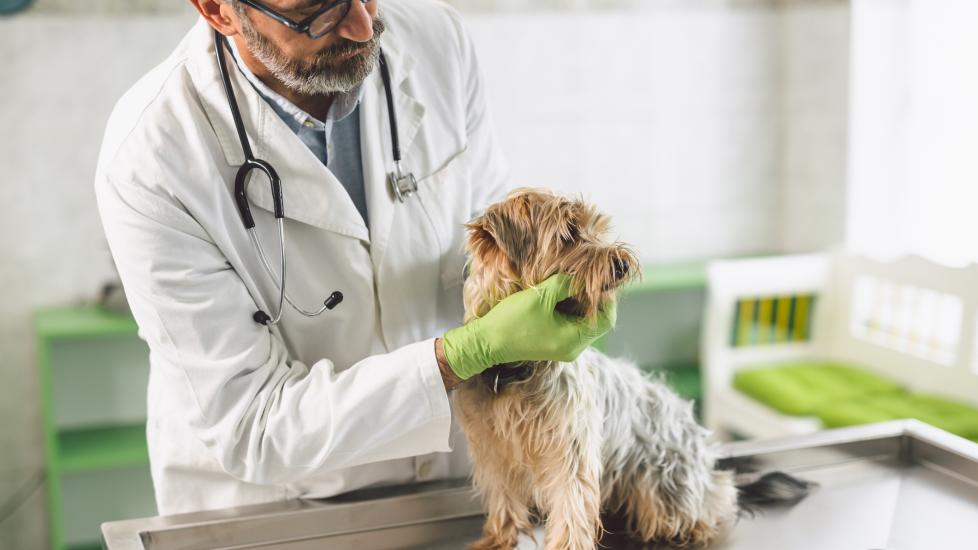Title: Unleashing the Truth About Bacterial Infections: A Comprehensive Guide to Streptococcal Illnesses in Canine Companions
Introduction:
In the realm of canine health, bacterial infections are a common concern for pet owners and veterinarians alike. Among these, streptococcal infections stand out as one of the most prevalent and potentially severe conditions affecting our beloved furry friends. Understanding this infection is crucial for early detection, prompt treatment, and prevention of further complications that could compromise your dog’s well-being. This article aims to provide you with an all-encompassing guide on recognizing, managing, and preventing strep infections in dogs.
What Is Streptococcosis?
Streptococcosis, commonly known as strep throat among humans, refers to a group of bacteria from the genus Streptococcus. These microorganisms can cause various diseases in both humans and animals, including serious infections in dogs. The two main types associated with canine illnesses are Streptococcus equi subsp. zooepidemicus (S Zooe) and Streptococcus canis. While S Zooe often leads to respiratory tract infections, S canis primarily affects the urinary system.
Signs and Symptoms:
Recognizing the signs of streptococcal infection is key to seeking timely veterinary intervention. Common symptoms include fever, lethargy, loss of appetite, enlarged lymph nodes, coughing, difficulty breathing, vomiting, diarrhea, and joint pain or swelling. In some cases, more severe manifestations like meningoencephalitis (inflammation of the brain and surrounding membranes) may occur.
Causes and Transmission:
The primary causes of streptococcal infections in dogs vary depending on the specific strain involved. However, they typically spread through direct contact with infected individuals or via contaminated surfaces or objects. Additionally, stress, overcrowding, poor hygiene, and compromised immune systems can predispose dogs to such infections. Regular vaccination against infectious agents and maintaining good sanitation practices at home contribute significantly to reducing the risk of transmission.
Diagnosis and Treatment:
Accurate diagnosis requires a combination of clinical examination by a vet, blood tests, urine analysis, and possibly imaging techniques if neurological involvement is suspected. Once confirmed, treatment usually involves administering antibiotics tailored to the particular strain identified. It is essential to follow the vet’s instructions strictly regarding dosage frequency and duration to ensure complete recovery. Supportive care measures might also be necessary during the healing process.
Prevention Strategies:
To maintain your dog’s robust health and prevent future bouts with strep, consider implementing several preventive steps:
1. Vaccination Programs: Ensure that your pooch receives all recommended vaccinations under their age-appropriate schedule.
2. Hygiene Maintenance: Keep your dog’s living environment clean and disinfected regularly.
3. Social Distancing: Limit exposure to other sick pets until they have fully recovered.
4. Regular Health Checkups: Schedule regular checkups with your veterinarian to monitor your dog’s overall health status.
5. Good Nutrition and Exercise: Provide a balanced diet and encourage daily physical activity to support a strong immune system.
6. Early Intervention: Be vigilant about any changes in behavior or appearance that could indicate illness; seek veterinary advice promptly.
Conclusion:
By arming yourself with knowledge about streptococcal infections in dogs, you become better equipped to recognize potential issues early on and take proactive steps towards keeping your four-legged companion healthy and happy. Remember, every dog is unique—consult with your trusted veterinarian for personalized advice based on your pup’s individual needs. Together, we can create a nurturing environment where our loyal companions thrive despite the challenges posed by bacterial invaders like streptococci.
